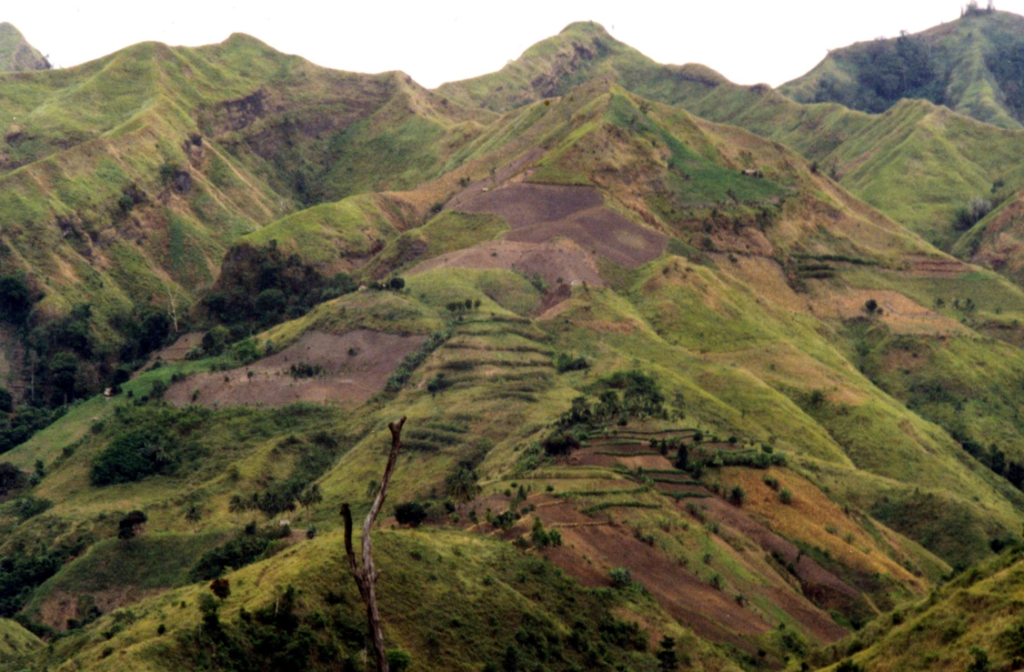Text and Photos by Henrylito D. Tacio
Additional Photo courtesy of Emmanuel Pinol
Climate change and food security – these are the two most serious problems the country is facing. That’s according to Emmanuel Piñol, former head of the Mindanao Development Authority (MinDA).
He said the observations after the country was hit by Typhoon Odette. Together with some friends who support his Green Philippines Advocacy (GPA), he will be “bringing truckloads of giant bamboo planting materials and fruit tree seedlings” to affected areas in the second week of January next year.
“(We) will not provide immediate relief to those whose lives were affected and properties damaged by the floods but this would certainly prepare them for the biggest challenge that we all face – climate change and food security,” said Piñol, who is running for the Senate this coming election.

In his Facebook account, Piñol urged Filipinos to look beyond Odette and other disasters that are now common in the country. “The problem we have is not how we could bring food and conduct relief operations in the affected areas because these are temporary,” he explained. “What should be given deeper focus is why these floods had been more frequent and devastating than before.”
Generally, typhoons bring with them strong winds and heavy rains. These two “inflicted a lot of damage but the most serious blow came from the floods which caused the loss of lives and properties,” Piñol said.
By looking at the murky and brown floodwaters which inundated the town of Loboc, Bohol, and Cagayan de Oro City, Piñol surmised that “there is not much vegetation or growing trees in the upstream of the rivers which flow down to these areas.”
Floodwaters that are murky and brown mean they carry tons and tons of eroded topsoil. “The floods came rushing down from the elevated areas with such devastating force because there is no vegetation or trees to impede the momentum,” Piñol said.
In another Facebook post, he said the country has only “6% forest cover left.” With such remaining forest cover, “there is an impending disaster awaiting the next generation of Filipinos if we do not do something today.”
We need to address this problem now, or else “the lives and food security of the next generation would be threatened.”
“There is no force or formula known to humanity to stop natural calamities like typhoons, in spite of the advances in science,” Piñol reminded. “We cannot stop typhoons but we can minimize the floods.”
The GPA will try to implement some possible solutions. “Tatlong klaseng pananim ang itutulak naming at ito ay ang giant bamboo, high elevation fruit trees and industries like to be intercropped with either coffee, cacao and others,” he explained.

The giant bamboo planting materials and fruit tree seedlings, he believed, “would contribute to the mitigation of flooding in 3 to 5 years and ensure food security.”
“Let us plant bamboo, trees and fruit trees in the upstreams of the oft-flooded river basins,” Piñol urged.
But the program doesn’t end there. The next step is the introduction of economic enterprises “which could provide the downstream activity to ensure the sustainability of the project.”
One example is the construction of an engineered bamboo processing facility that will turn the giant bamboo into housing and building materials.
Piñol said he would submit GPA for registration with the Securities and Exchange Commission as a non-profit organization aimed at shifting the re-greening program mindset from simply environmental regeneration to economic remuneration as well.
“I would like to clarify that the continuity of the (introduced) program is not dependent on the outcome of the May 2022 national elections,” Piñol emphasized. “Politics will not define my personal advocacies and commitments, although admittedly the inherent powers and influence of a senator could certainly enhance support for the program.”
The program, he pointed out, “will be my legacy for the next generation of Filipinos which includes my children, grandchildren and those who will come after them.”

